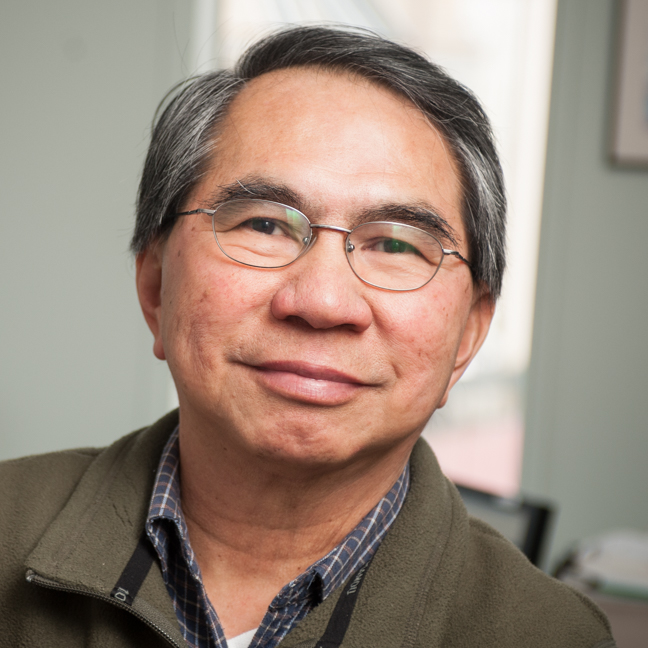apply4phd
انچه در مورد اپلای برای دکترا مفید دیدیمapply4phd
انچه در مورد اپلای برای دکترا مفید دیدیمSchool of Information Management Prof Pak Yoong vicrotia uni
Prof Pak Yoong
Professor of Info Systems
School of Information Management
pak.yoong@vuw.ac.nz
Phone: 04 463 5878
Fax: 04 463 5446
Location: Room 510, Rutherford House 23 Lambton Quay, Pipitea Campus

Currently Teaching
INFO 101 - Foundations of Information Systems
Course Lecturer
INFO 407 - Virtual Workplace: Issues and Strategies
Course Coordinator
MMIM 512 - Strategic Information Management
Course Coordinator
Introduction
Pak teaches in the areas of virtual organisation, research methods and IS leadership. His research, teaching, and consulting experience is in the facilitation of virtual meetings, online communities of practice, online knowledge sharing, and human resource development in information technology environments. Pak uses action learning and action research methods for many of his research projects and pioneered the use of ‘grounded action learning’ method (a combination of grounded theory and action learning) in IS research. He is one of six teachers in the University to have been awarded a Victoria Teaching Excellence Award for 2010, which recognises outstanding contributions to teaching and learning in the University.
Pak's PhD students are engaged in knowledge sharing research projects such as:
- the development of an online peer consultation system for knowledge workers;
- the role of ICT in enhancing knowledge sharing among members of business clusters; and
- the role of ICT in the development of learning regions in New Zealand.
Qualifications
MSc, Auckland; DipEduBroadcasting, York; DipSocSc, Victoria; PhD, Wellington; MAIS
Current Research
Online knowledge sharing, online communities of practice, and online mentoring between older and younger workers
Administrative Responsibilities
- PBRF Coordinator (SIM)
Selected Publications
Cranefield, J., Yoong, P. & Huff, S. (2011). Beyond lurking: the invisible follower-feeder in an online community ecosystem. Proceedings of PACIS 2011 ( pp. 1-16). Brisbane: Queensland University of Technology. [Received a Best Paper Award at PACIS 2011]
Cranefield, J., Yoong, P. & Huff, S. (2011). Driving change through online brokering practices in an online community ecosystem. Proceedings of PACIS 2011 (pp. 1-13). Brisbane: Queensland University of Technology.
Toland, J. & Yoong. P. (2011). An exploration of historical methods for information systems research. Proceedings of PACIS 2011 (pp. 1-14). Brisbane: Queensland University of Technology.
Retzer, S., Yoong, P. & Hooper, V. (2010). Inter-organisational knowledge transfer in social networks: A definition of intermediate ties. Information Systems Frontier. Available online: http://www.springerlink.com/content/m00l5147j41j0617/
Thornton, K., Yoong, P. (2008). The application of online action learning to leadership development: A case study. In D. Remenyi (Ed.), 9th European Conference on Knowledge Management (pp. 861-868). Reading, Academic Publishing International.
Yoong, P., Pauleen, D., Gallupe, B. (2007). Generating data for research on emerging technologies: An action learning approach. In Ned Kock (Ed.), Action Research: An Applied View of Emerging Concepts and Methods (pp. 255-276). New York, Springer Science & Business Media.
Cranefield, J., Yoong, P. (2007). Interorganisational knowledge transfer: The role of the gatekeeper. International Journal of Knowledge and Learning, 3(1), 121-138.
Pauleen, D., Corbitt, B., & Yoong, P. (2007). Discovering and articulating what is not yet known: Using action learning and grounded theory as a knowledge management strategy. The Learning Organization, 14(3), 222-240.
Toland, J., Yoong, P. (2007). Walking backwards to go forwards: The issue of historical methods in information systems research. In David Pauleen (Ed.),Proceedings of the 4th QualIT Conference (pp. 1-12). Wellington, School of Information Management, Victoria University of Wellington.
Cash, E., Yoong, P. & Huff, S. (2004). The impact of e-commerce on the role of a IS professional. The DATABASE for Advances for Information Systems, 35(3), 50-63.
Yoong, P. & Pauleen, D. "Generating and Analysing Data for Research on Emerging Technologies: A Grounded Action Learning Approach." Information Research Journal 9, no. 4 (2004). Available online at http://informationr.net/ir/9-4/paper195.html
Pauleen, D. & Yoong, P. "Facilitating Virtual Team Relationships via Internet and Conventional Communication Channels." Journal of Internet Research: Electronic Networking Applications and Policy 11, no. 3 (2001): 190-202. (Awarded 'Most Outstanding Paper' prize for 2001).


























